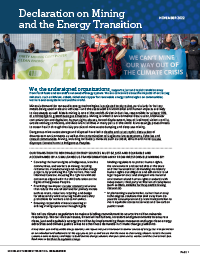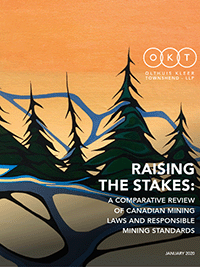87 Indigenous Peoples’ representatives
The declaration includes “Companies must recognize and respect the right to FPIC, which also means the right to say no, in their policies, procedures and practices in all projects, recognizing and emphasizing the self-determined development of Indigenous Peoples. The International [sic] Responsible Mining Assurance (IRMA) policy on FPIC must be the minimum standard for mining companies.”









